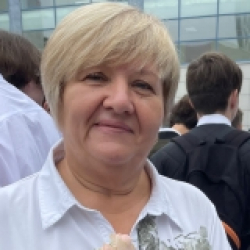Просмотр содержимого документа
«10 Famous Female Scientists Who Helped Change the World»

10 Famous Female Scientists Who Helped Change the World
Anchugina Sasha
2021

Marie Curie
The Polish scientist studied at the Sorbonne, where she became the head of the physics lab there in the early 1900s — when women really did not teach science at European universities — and pioneered research in radioactivity. She and her husband jointly won the Nobel Prize in 1903.

Jane Goodall
The most famous primate scientist in history, Jane Goodall was renowned for her work with chimpanzees and as a champion of animal rights. And Goodall wasn’t just working in a lab; she climbed trees and mimicked the behavior of chimps in Tanzania to gain their trust and study them in their natural habitat.

Sara Seager
By the time women were being trained as university scientists, the “solar system” had been pretty well-mapped. But Sara Seager, born in 1971, has discovered 715 planets in her time working with the Kepler Space Telescope, a remarkable contributor to the modern understanding of space.

Ada Lovelace
Lovelace is regarded as the first computer programmer — long before modern computers were invented. Her notes on Charles Babbage’s proposed analytical engine (a programmable, general-purpose computer), is considered to be the very first computer algorithm.

Vera Rubin
Click icon to add picture
Rubin discovered the existence of dark matter, the strange glue that holds our universe together. Her contribution is regarded as one of the most significant discoveries of the 20th century

Gladys West
West’s work in developing mathematical modeling of the shape of the Earth served as the foundation of GPS technology. In 2018, she was inducted into the U.S. Air Force Space and Missile Pioneers Hall of Fame, one of the Air Force space command’s highest honors.

Valentina Tereshkova
A member of the Russian State Duma, engineer, and former cosmonaut. She is the first and youngest woman to have flown in space with a solo mission on the Vostok 6 on 16 June 1963. She orbited the Earth 48 times, spent almost three days in space, and remains the only woman to have been on a solo space mission.

Henrietta Leavitt
Leavitt made breakthrough discoveries in astronomy, including the identification of over 2,400 variable stars. Her work doubled the contemporary knowledge of these stars and helped Leavitt find the link between a star's brightness and its distance from Earth. Based on her discovery, Edwin Hubble determined that the universe was expanding.

Lise Meitner
Austrian physicist and radiochemist. Conducted research in the field of nuclear physics, nuclear chemistry and radiochemistry. The 109th element of the periodic table-meitnerium — is named in her honor.

Marie Tharp
An American geologist and oceanographic cartographer who, in partnership with Bruce Heezen, created the first scientific map of the Atlantic Ocean floor. Tharp's work revealed the detailed topography and multi-dimensional geographical landscape of the ocean bottom.

Thank you for your attention!





























